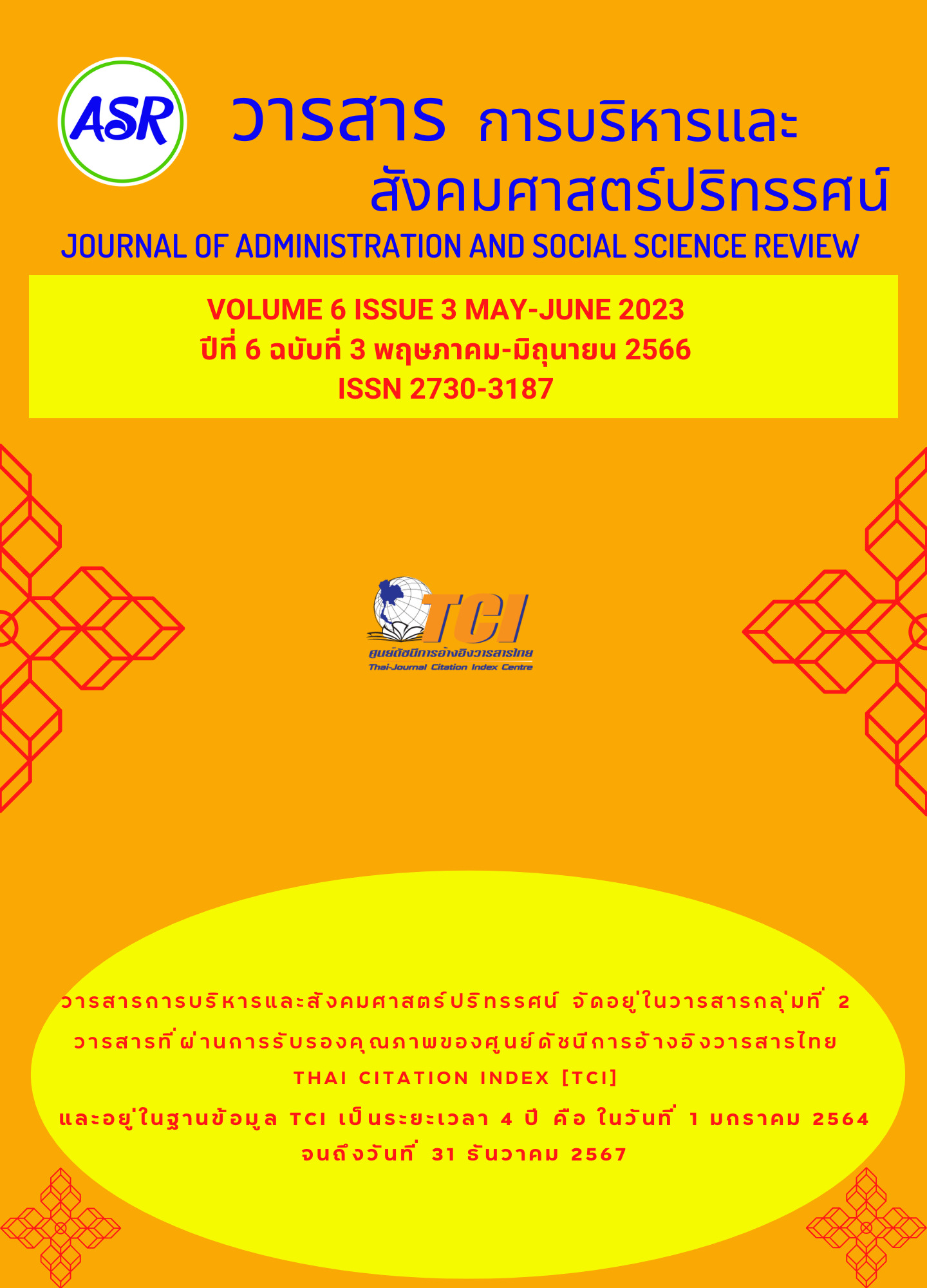The Relationship between Participatory Management and the Efficiency of Small Schools in Sukhothai Primary Education Area Office 2
Keywords:
participatory management, school effectivenessAbstract
This research study intends to study degrees of participative management and its efficiency, and their relationship at small elementary schools in Sukhothai Primary Educational Service Area 2.There were 275 participants in the sample, including 255 instructors and 50 school administrators. Data on participative management and the efficiency at the small elementary schools were gathered by two surveys. By the mean, standard deviation, and Pearson's correlation analysis, the acquired data were examined. According to the research, there was a modest degree of participative management and a strong relationship with the efficiency at the small primary schools. According to the findings, the small primary schools in Sukhothai Primary Educational Service Area 2 might become more productive by applying participative management.
According to the findings of this research, the degree of participative management at the small primary schools under the Office of Sukhothai Primary Educational Service Area 2 was at its peak. Also, their efficiency was at the highest level. At a significance level of 0.01 in the study, there was also a statistically significant positive association between participative management and the efficiency at the small primary schools. The positive association was attributed to the fact that the new generation of the school administrators held the participatory management principles, particularly at the small-sized elementary schools with limited supplies, equipment, budgets, employees, and current technology. As a result, collaborative management is required: involving with participation in planning, operations, decision-making, benefit receipt, and evaluation. School administrators can efficiently fulfill the goals they have set for the school by promoting the involvements.



